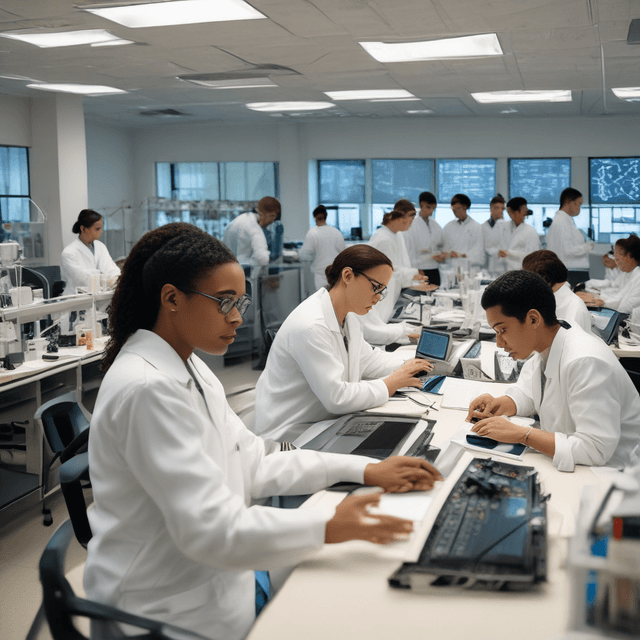
| Focus | Gradual, collaborative, globally distributed scientific progress |
| Impact | Agriculture • Medicine • Energy • Communications technology |
| Emphasis | Empirical observation, experimentation, practical applications |
| Influences | Industry • Commerce • International cooperation |
| Contributors | Diverse global centers of scientific activity, not dominated by Western Europe |
Science in this alternate timeline has developed as a more gradual, collaborative, and globally distributed endeavor, rather than the more punctuated, revolutionary progress seen in our own history. Rooted in empirical observation and experimentation, the scientific enterprise has maintained a stronger focus on practical applications that improve quality of life, in parallel with advancements in industry, technology, and commerce.
The origins of modern science can be traced back to ancient civilizations in China, the Islamic world, and India, where systematic study of the natural world and development of advanced technologies laid important groundwork. However, the mainstream narrative of scientific progress has often privileged developments in Western Europe, beginning with the Renaissance and the Age of Enlightenment.
In this timeline, the advancement of science has been a more collaborative, incremental process, with important contributions emerging from diverse global centers rather than being dominated by a narrow European tradition. Key milestones include:
The core principles underlying scientific practice in this timeline include:
The scientific method, incorporating hypothesis formulation, experimental testing, and iterative refinement, has been a core driver of progress. However, approaches have often blended qualitative and quantitative techniques, reflecting a pragmatic balance between theory and application.
Scientific research in this timeline has spanned a diverse array of fields, with notable developments in areas such as:
Particularly noteworthy has been the strong emphasis on using scientific knowledge to address global challenges, such as food security, public health, environmental sustainability, and technological development.
While the pantheon of famous scientists differs somewhat from our own timeline, this alternate history has produced many influential figures who have advanced the frontiers of knowledge through their work. Some examples include:
These scientists, along with many others from diverse backgrounds, have helped shape the course of scientific progress in this timeline.
The impact of science in this alternate history can be seen across numerous domains of human society and endeavor:
As science continues to evolve in this timeline, its capacity to improve quality of life and drive positive societal transformation remains a core priority, balanced with the pursuit of fundamental knowledge.